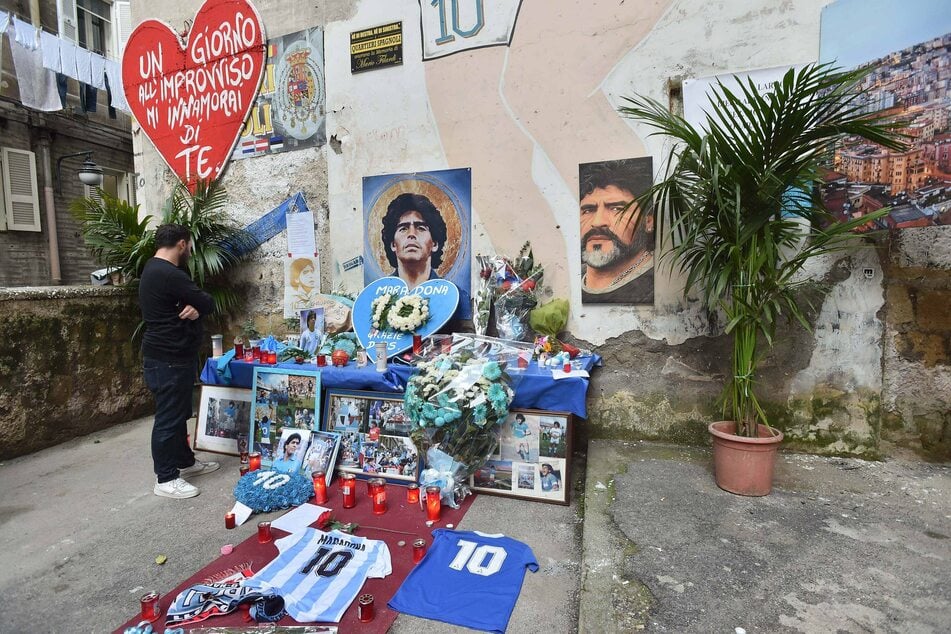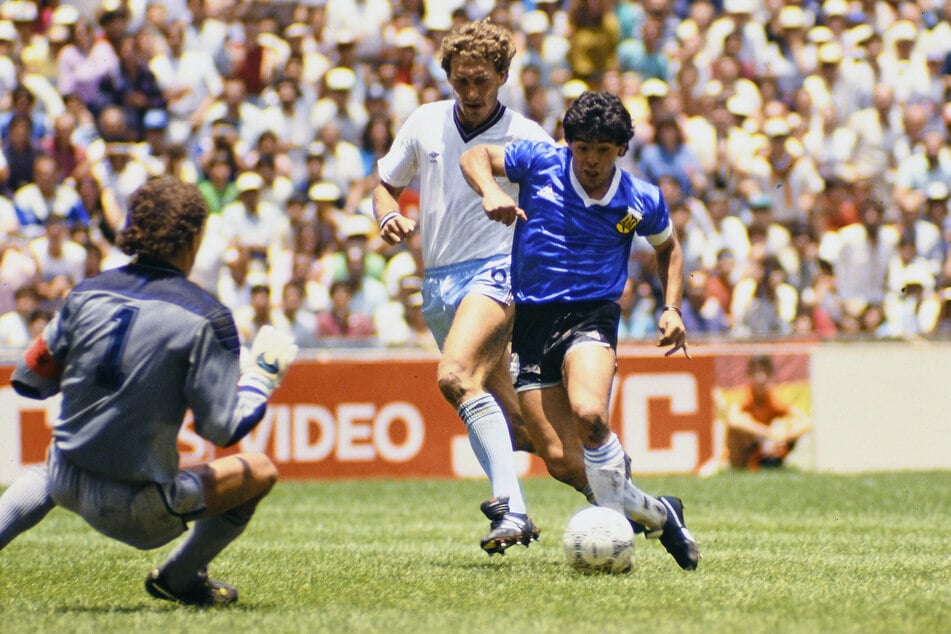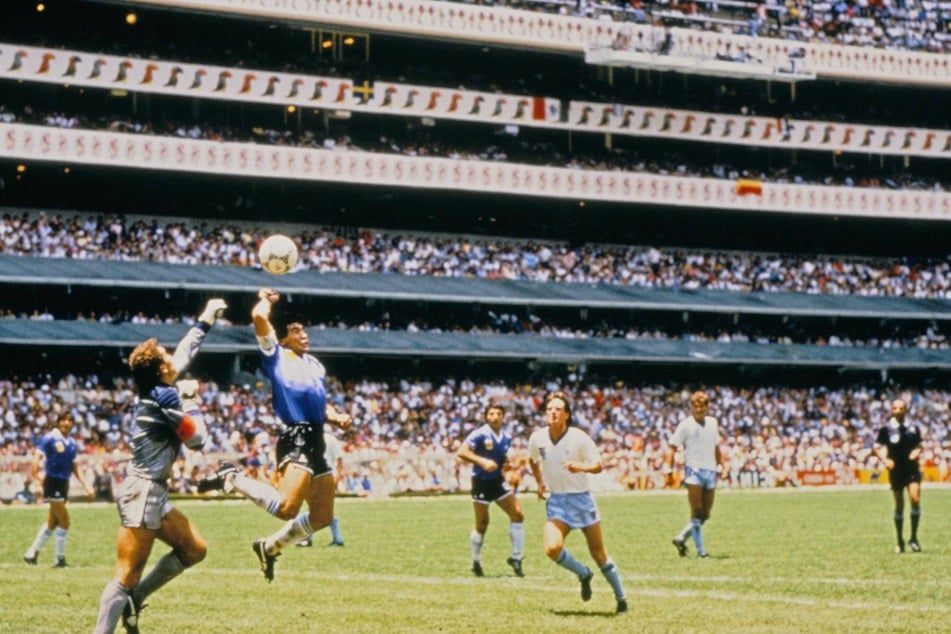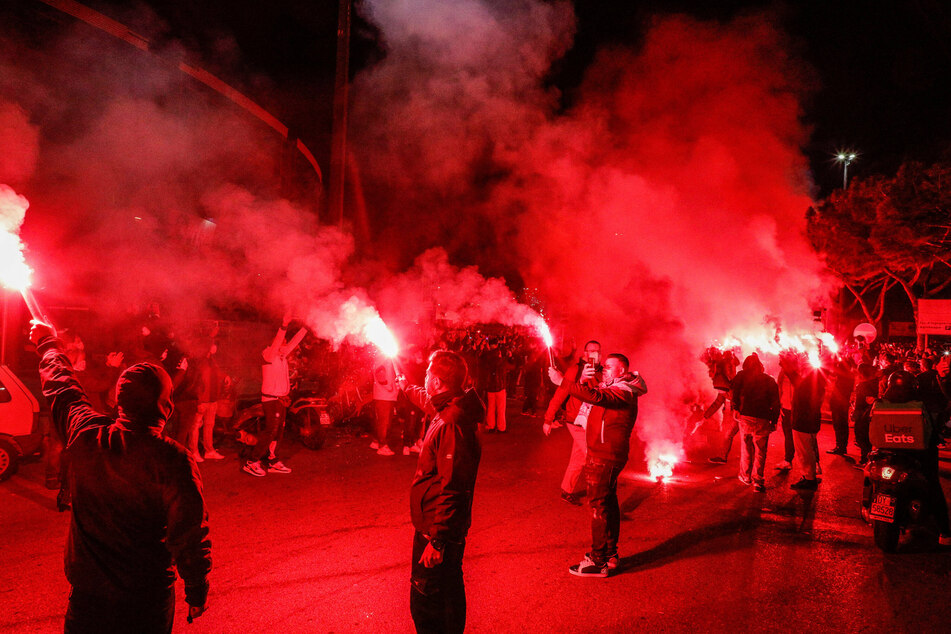The meaning of Diego Maradona, soccer's complicated god
Buenos Aires, Argentina - "When you're on the pitch, life goes away. Problems go away. Everything goes away."

British director Asif Kapadia struggled to get meaningful access to the subject of his latest documentary.
His 2019 movie Maradona relies heavily on unused footage from the 1980s and interviews with people who gravitated around one of soccer's most influential, inspiring, heartbreaking, and contradictory figures.
But one of the few substantial interviews with Diego Maradona that Kapadia was able to record produced the perfect quote to sum up both the man and the myth.
In a voice cracking with age and exhaustion, quiet yet somehow still forceful and deliberate, the Argentinian told his entire life story – which ended Wednesday at the age of 60 – in three short sentences.
"Life goes away..."

The first dream that Diego Armando Maradona ever had was not of greatness, but of escape.
He was born in suffocating poverty and grew up in a ramshackle house built from scraps by his father on the outskirts of Buenos Aires. He shared a tiny space with four sisters and started earning money anyway he could before even learning how to read properly.
Long after he became a multi-millionaire superstar, Maradona still spoke about his two burning ambitions in life: buying his parents a nice house and never having to return to the shantytown of his childhood. He ended up achieving all of this and much more, thanks to his love affair with the soccer ball.
In many ways, there is nothing particularly unique about this narrative. It's a testament to the power of mass sports – whether soccer, basketball, or football – that it often allows athletes to raise themselves up from the most desperate conditions. And who wouldn't want to escape life, when all it seems to hold is hardship?
No, what set Maradona apart wasn't this rejection of life, but his ability to reaffirm it on the field.
Those who saw him in the flesh speak in almost religious terms of the intoxicating beauty and elegance of his skill. His "goal of the century", scored in the 1986 World Cup semifinal against England, literally brought the Argentinean commentator Víctor Hugo Morales to tears of ecstasy. Every touch of the ball and every English player left behind in his shimmering wake added another layer of emotion for those watching, culminating in an explosion of raw all-consuming joy.
For Maradona, life may have "gone away" when he stepped onto the grass. But he managed to play the game in such a way as to make himself and millions of others feel truly, powerfully, completely alive.
"Problems go away..."

It's impossible to understand the unparalleled appeal of Maradona without touching on his many, many faults. Simply focusing on his almost otherworldly talent isn't enough. And there are other worthy candidates for the title of greatest of all time.
But it's hard to think of any player who had a bigger social and cultural impact wherever he went. Journalist and writer Jonathan Wilson, who chronicled the history of Argentinian soccer in his book Angels with Dirty Faces, argues that Maradona represented the fulfillment of a prophecy in his home country. He was the living, breathing, dribbling incarnation of a national identity that emerged late and was intimately tied to playing soccer.
The symbolic figure of the pibe, a charming rogue who gets by on wit and street smarts, was popularized and described decades before Maradona ever kicked a ball. He was only a teenager when he got the nickname that appeared to have been destined for him: El Pibe d'Oro – The Golden Boy.
And like any good pibe, Maradona treated rules like just another opponent to feint past, on his way to the goal.
Nothing illustrated this attitude better than what he did in that same match against England, minutes before scoring his masterpiece. With the score still 0-0, he punched the ball into the net, in a blatant but cleverly disguised act of cheating. "A little with the hand of Maradona, a little with the hand of God" is the way he described the goal, and everyone (except the English) loved him all the more fore it.
It was much harder to laugh off his shenanigans during his time in the Italian city of Naples, where he led the local team to unprecedented success. Even as Maradona delivered glory and trophies, his problems became increasingly harder to get away from. The inescapable fame and crushing love of fans ate away at him, so he filled the gaping wounds with cocaine. The hangers-on and Mobsters exploited him, so he began distrusting and mistreating those who truly cared about him.
In the end, the problems stopped going away when he walked onto the field. They spilled out and got him banned from playing, as well as arrested. But that only bolstered his legend. As Argentinean writer Marcela Mora y Araujo put it, his transgressions made him seem all the more "achingly human".
Maradona was a profane saint. He could heal everyone's woes for 90 minutes, but also put them into perspective with his own flaws. It's almost comforting to know that even Dios – God – isn't perfect.
"Everything goes away..."

In strictly professional terms, Maradona never truly made the most of his career.
He won only a handful of major honors, as remarkable as they were. He lost years to injury, substance abuse, and suspensions. "El Diego" was no relentless machine like Michael Jordan or Babe Ruth, who reigned supreme for years on end. After he stopped playing, his decline was pronounced and distressing, often unfolding publicly in real time.
But when news of his fatal heart-attack came through on Wednesday, the global explosion of grief showed just how inadequate these conventional ways of measuring an athlete's legacy can be.
As Maradona's body lay in state at the Casa Rosada, the seat of the Argentinean presidency, thousands upon thousands came streaming past. Most were weeping, many sang their songs and threw their sky-blue shirts and scarves on the coffin. In Italy, fans of S.S.C. Napoli surrounded the stadium they have been locked out of for months due to the pandemic and created a literal ring of fire with their flares.
All over the world, there are people for whom Maradona was synonymous with soccer. It can feel as if, along with his passing, everything else has gone away too. But then again, just as with life and problems, what he left on the pitch has a way of echoing back and producing something just as intense.
Diego Armando Maradona was everything in far too many places, for far too many people to ever really go away.
Cover photo: imago images / ZUMA Wire

